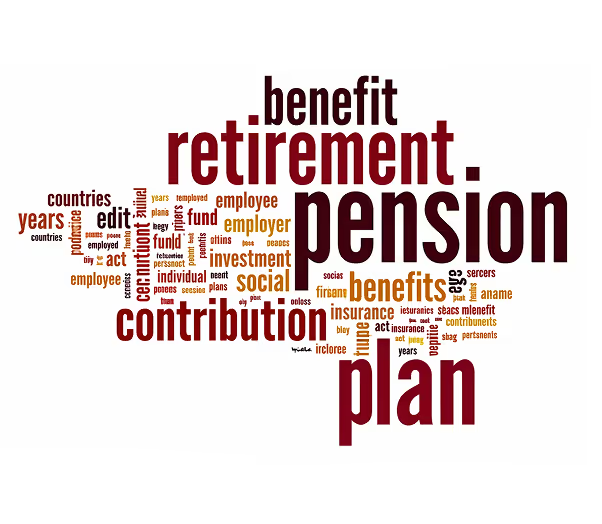The basic principles of providing income in retirement are to plan in advance, minimise taxation and maximise investment opportunities.
Expats face some challenges but can also access highly tax-efficient structures to optimise their income in retirement.
Everyone’s financial position is different. Some hold valuable Defined Benefit pensions, others rely on property rental income, and many have personal pensions and investments targeted at income generation. Of course, most people have a mix of all the above.
The key to maximising your position is to make sure you fully understand the financial products you hold, know how income can be withdrawn and the tax implications of doing so.
Pensions
Defined Benefit schemes pay an index-linked guaranteed pension starting at a predetermined Normal Retirement Date (NRD). Whilst it is possible to take benefits early or late, most do vest their pension at the NRD. Drawing benefits early comes with a penalty, and later means a higher pension can be secured. Most schemes offer retirees the option to commute income for a tax free lump sum, thus reducing income.
Here is where the first important decision needs to be made. The tax free lump sum is only tax free in the UK and for payments made from there. It isn’t necessarily tax free in the country in which you are tax resident. If you are planning to retire to an EU country and prefer this option, it makes sense to take the tax free cash before becoming a resident of your new country. If you are already tax resident outside the UK, it’s vitally important to take qualified tax advice before committing to taking the lump sum. Once you have done it, you can’t change your mind.
Defined Benefit pensions are generally not included in your estate for wealth tax calculations, but income is usually taxed in the same way as salaries.

Personal Pensions and SIPPs
If you hold a PP or SIPP, it’s worth asking your tax adviser for information about how income is taxed. In Spain, for example, there are differing opinions amongst tax advisers, and it’s important to ensure your tax adviser is knowledgeable about how the authorities categorise foreign pensions. It may even be worth obtaining a ruling.
Some tax advisers believe that UK PPs and SIPPs should be treated as investments. This is important as taxation on income would then be considerably lower than if treated as general income.
UK Defined Contribution pension plans can vary widely. Older schemes tend to be more restrictive in how benefits can be withdrawn. Annuity-based plans are almost impossible to access if you are not a UK tax resident, so action needs to be taken to transfer away from this type of scheme. Similarly, some schemes restrict benefit payments to ‘capped drawdown’ rules. This is a prescriptive method of calculating a maximum income that can be taken. It’s also inflexible, as once started, it’s difficult to change. Annuity and capped drawdown plans are also more likely to be treated as general income and taxed accordingly.
Ideally, your PPs will benefit from Flexible Access Drawdown rules, which means you can alter the level of income you receive year on year. Sometimes this may mean taking nothing in any given year, as your other pensions and income sources are sufficient to cover your expenses. Using FAD can therefore prevent taking too much income and paying tax unnecessarily.
Lump sums are unlikely to be tax free, so care needs to be taken here as per the above regarding DB pensions.
Investment Income
Something newly arrived expats need to be aware of is that the local tax system is different from the UK’s. Investment products such as ISAs, which are highly tax-efficient in the UK, are not as useful if you retire to an EU country. Similarly, income-producing Unit Trusts might be taxed at higher rates in your new country than in the UK.
Rental Income
Rental income should also be checked. In some cases, the tax treatment in your new country of residence may be more beneficial than that in the UK. It’s possible, for example, in Spain to claim up to 60% relief on income.
The good news is that there are opportunities to minimise taxation without compromising investment options. France, Spain and Portugal allow investment into highly tax-efficient environments if the product complies with local regulations. Generally, this means the contract must be issued by an EU-based insurance company who have a local fiscal representative. There are certain conditions regarding which investments can be held within the structure and the length of time required to benefit from the tax allowances.
Maximum tax efficiency is achieved in France and Portugal after 8 years, whereas it’s instant in Spain. This isn’t to say that income cannot be withdrawn tax efficiently before the 8 years.
Income in Retirement Strategy
It makes sense to have an income generation strategy in place before it’s too late to change anything.
Here’s my quick checklist to help organise your personal strategy:
- Understand how your financial products provide income. How much flexibility is allowed?
- Is it worth deferring taking benefits? Maybe there’s an advantage in not taking your Defined Benefit pension at Normal Retirement Date. Maybe it’s better to generate income from other sources.
- Are your underlying investments tax-efficient? Is it better to hold income-producing or accumulation funds? Does it make any difference?
- Are you taking advantage of approved tax-efficient investment product structures?
- Have you planned your retirement income? Which pot will you be withdrawing from and when? Some people use spreadsheets to help with planning.
- Have you spoken to your financial adviser? They can help with organisational and structural changes which need to be made to maximise your position.
- The same applies to your tax adviser. Do they fully understand international residents, and can they help reduce tax liabilities?
- Are you aware of other taxation that might apply to your retirement planning? Capital Gains Tax and Inheritance Tax may or may not be issues to be aware of.
I would suggest that the first step to creating your personal income in retirement plan is to contact a suitably qualified and experienced independent financial adviser. A professional adviser can help with general planning and designing an investment and pension strategy. In most cases, it will also be necessary to use the services of specialist tax advisers and, perhaps, law firms for Wills and succession advice.
If you would like to find out more about income in retirement options, please get in touch.
About Phil Loughton
He has worked in the financial services industry for 35 years and is an expert in expatriate retirement planning.













